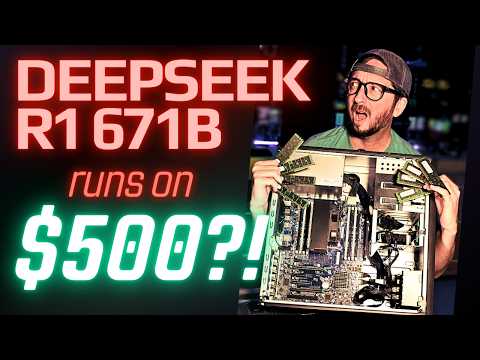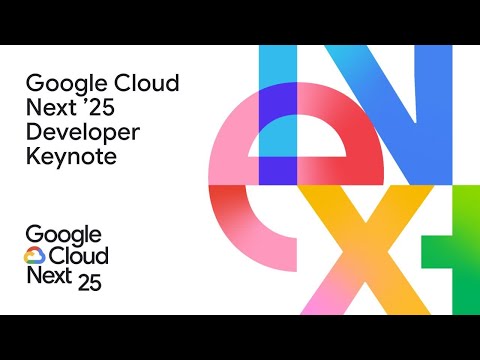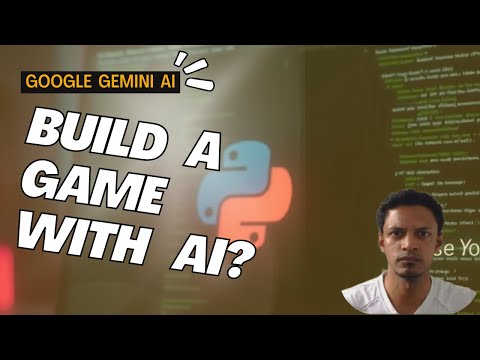Product Design subject talk

Hello, my name's dan garner, i'm a senior lecturer here in product design at the university of derby. Um, welcome to the presentation. Um this is a, an introduction. To, the product design program, we have at the university, of derby, and. Hopefully it will give you a little bit of an overview. Of the the course. And. Help you make a decision. Um as to which way you would like to go. On your next step in higher education. So just before, we, have a look at the program, um. Quick disclaimer, here um, the presentation. Is correct at the time of delivery, um which is, may 2020. Um however, we do, regularly review the content of our courses. So, um. It's always a good idea, to visit our website to get latest information. There's also a huge amount of additional information, on our website, our website. Such as. Information, about living in derby. And the other great facilities, that we have at the university, here. So here we can see. Many of the experiences. Which i'm, sure you would expect to find on a product design, degree program. Such as the fact that it is a highly practical program. We do. Have. Fantastic. Workshop, facilities, which i'll talk about later on. And you would be expected, to spend a lot of your time. Making, drawing. And um, using other, technologies. To develop your design, ideas. Um, however. There are a few other things which i'd like to sort of, say at this point. Um. This is a. Fairly new program, we wrote it. Last year. And i think it's important to understand, the ethos. That we based, our, developments, on. We wanted, to develop, a course. That would prepare, students. For. A career, in the future, of product design. So. It is, a discipline, which sits at the interface, between. Culture and creativity, on one side. And, science, and technology. On the other side. And it's important, that as designers. We. Take account of the changes, and the developments, that are happening. And adapt, to. Our our, new environment. So, currently we're entering. Uh what some people are calling the fourth industrial, revolution. Industry 4.0. Um. And. In view of things that are happening in the current, um, world. As well i think there's a, definite. Momentum. For change. For, many of our traditional, practices. So. We're seeing, things like human machine interfaces, becoming more complex. Systems, such as artificial, intelligence. Being used to gain, competitive, advantage, in many areas. Many tasks, that were previously, required. To have sort of skilled, and, highly skilled, manual operation. Are starting, to become more automated. So. Where does that leave us, um. When we consider, the impact, of this on on the role of a product designer. It's difficult to be, sure but. Through our research. And review of, various. Opinions, world opinions. We feel, that. Role of a product designer is still going to be. An important, role, but one which may, shift slightly, from where it is now. In some cases we feel that it will become important for designers, to be able to innovate, through the manipulation, of technology. We need to understand, how it works, and how to be creative with it so that we can produce. Highly productive. Outcomes. So. There's also, uh. At the other end of the spectrum, a need for designers. To. Have a really deep understanding. Of the behavior, of people, and their societies. Um so that we can produce. Products that are meaningful. And also desirable. So ones which people want to own, and will enjoy. Using. These are the two visions which really have framed, the development of our program. And. That's the reason why we have two pathways. One for a ba, and, the other for the bsc. Degree.
There's A common first year. And the reason for that is that we want you to experience, the breadth of product design. Before. Having to make the choice. Of which pathway, to take. It's all set up to help you make an informed. Decision. Essentially. So the facilities, that we have here. Um, as i said, it is a highly practical, course. We do have a dedicated. Studio. Um. There. You can go on to the university, website, and have a look at. 360. Degree. Um. Views, of many of our facilities, so i would urge you to go and, do that. So our studio space is flexible, we use it for. Practical. Sessions. In in, drawing, um we, also. Do conduct, some lecture work in there, we will have group activities. There's some technology, in there so we have um. Currently, about, uh six. Um, 3d printers in there which are set up, for students to essentially, use for free. Um, it's about, learning. And, being able to. Choose when and when not to use, technologies, like that. Um. In addition to this we have, a really exciting, community. Um. Based around, the uh something we call the makerspace. Um the university. Is part, of a consortium. Um. With, mit. Uh. In, boston. And. We're part of a group of universities, worldwide. Which. Are. Developing, and discussing. The importance. Of making. Innovation, and entrepreneurship. And the makerspace, is a student-run. Creative. Facility. Where, you can collaborate, with students, from all sorts of different disciplines. And it's a really great place to have, some creative, ideas. Um. So. Uh there are also other, um, design, hub, for example. Um. Where. You can, use traditional contemporary, techniques, for print making. Um. And, and other, uh. Production, of other sort of media. Um. There's a print bureau. Um, if you. Uh that will, produce, the work for you um, if you if you don't have the time to to go in and use the. Digital design hub yourself. We've got excellent libraries. Um, the art design library, is a couple of minutes walk away from the, central campus at marketing, street. And it's a great place to go and browse, the. Design, collection. And there's also, a media loan hub there for. Booking. Equipment, such as digital cameras. Laptops. Graphics, tablets. All the sort of things which. You may wish to to book out and use, either on campus or to take home and, use them on a, short loan basis. Looking at the the overall structure of the program. Um. If we look at the first year, um there's a lot of focus here on how you will transition. From. Um. Your previous education. Into higher education. Um, focus, is on learning. Core skills. Um these may be practical skills. And technical, skills. Um and also, gaining, a a base understanding. Of. Methodologies. And. Theory, and knowledge around, design. Processes. It is a common first year. And. It is also. A pass or fail rather than a graded. Assessment. As we feel that this encourages. A risk. Taking, approach, um within your studies. In year two, we start to develop. Your. Um, your interests, by. The selection of, a pathway within the program. We will also start to introduce. Um professional, skills. Uh start thinking about, how you apply. Uh your design skills in the real world. And there'll be, um, a focus, on. Supporting. You, develop, your own career interests. Um. Done in a number of ways, using, live projects, and also. Um preparing, you, um, for. A year in industry. If that is what you're interested in doing. At the third year. The focus is really, on developing. Your independence. A large part of the final year work is your independent, study.
And, And it really, develops. And enhances, your your professional, skill sets. Um in the direction, of your. Um of your selection. If we look at the the following. Um. Years in a little bit more detail. Um. The first year as i said is a common first year so all students, will will do this. Um, there is a, design encounters, module which is all the sort of studio based, and workshop based practical skills so sketching and model making. Uh technical exploration. Covers. Um, some of the more science-based, subjects, so materials, and manufacturing. And also introduces. The computer-aided. Design work. And then in thinking about design and thinking through design, are where. You start to think a little more in depth about. Design processes. And the. The ways which design, can be. Utilized. Effectively. For, good. Impact. At year 2, the, the program, then. Has two pathways. And you can choose either to follow a ba pathway, or a bsc, pathway. Now there's only one module different. But. How you approach, some of the other modules, will, be slightly, nuanced, dependent, on the pathway that you're, selecting. So. Um as a ba student, um. Well, as both pathways, um you will study design practice, which is really applying. Um technology. Um, and, um, and your design skills. To, develop a product all the way from concept, through to the point where it's. Ready to be manufactured. Uh in social design we're starting to look at the, the impact, of design. How design can be used to change behaviors. And to benefit society. And in ux, design, we're looking at a collaborative, approach, to design. Um which may, take us out of. The traditional. Um. Physical product based, approach to design so starting to look at. Things like services. And. Interactions. Through, tools, and and. Online, services. The the, the model that is different is design visions. And in that. The ba students, will develop, their. Design communication. Skills a little bit more in depth. And they'll also start to focus, on. How to manipulate, the aesthetics, of products, to. Create meaning. Um, for brand, and marketing, purposes. And. Also. Begin to start thinking about, the environmental. Or sustainability. Sustainability. Impact. Of the products that they're developing. And that's. Not just based on on material, selections. And recyclability. But also on looking at sustainable. Sustainability. From a holistic, point of view. The bscs. Uh in contrast, the the one module that is different is technical development. Um, for them, and what they will look at, is. Um. A set of, technical, development. Skills, such as, computer-aided. Engineering. Approaches. Computer-aided, manufacturing.
Techniques. And. Electronic, prototyping. Processes, so, they'll be developing skills that enable you to, enhance, technology. And to look deeper. Into the, design of your product and analyze it in a bit more depth. And explore, the the function. And the interaction, with that product at a high. A high level. As i said, there is an opportunity. To take a year out in industry. And. We encourage, students to consider, that as an option. Following on from that. The third year of the of the program. As suggested, the independent, study is your, major. Um. Focus, in that year and takes, actually about two-thirds, of your, full. Um. Time. Um. Both. Cohorts. Both pathways, will also do, the context, and professional, design. Um. Module, which. Focuses. More on the development, of professional, skills and is often. Working alongside. A company on a live brief and this year. For the last couple of years we've worked. With companies, and designs. Produced by the students have actually been taken forward by that company. And taken, into development. Which is really exciting for the students. The difference is then for the ba students, the critical, analysis, of design, is, essentially like a dissertation. It's a chance to really explore. A topic of your choice, at a very sort of academic, level so. Doing. Research. Looking into, the the work for a, practice, practitioner. Or a, design movement, or, perhaps, a type of design. Field of design. That interests, you. For bsc, students there's an enhanced, digital techniques, module, which is a development. Again of more. Technical. Skills. Looking at the future, technologies. That may be, coming about. So things like augmented, reality. 3d, scanning. And capturing, of. Physical, data. Or looking at. Modeling. New modeling techniques, such as. Field based modelling, which uses algorithms. To control. The structures, rather than, physically manipulating. Geometry. Essentially. Looking at all of the. The whole program. And, we like to think that there's a huge amount of flexibility, in there and a huge, opportunity. For you to really tailor your design. And so, tailor your degree. So that it meets your ambitions. And. The result, is that you have a personal. Approach, to, your degree. Education. So what do you need to. Get onto the course. Um, we are currently looking, for, 112, ucas, points which is the equivalent, of uh bbc. Um. For everybody that applies, we will be, requesting. Uh an interview, that, maybe. Uh if you can't make it, on site, um that may well be a telephone, interview. And alongside, there we would expect there to be a portfolio, of work and what we're looking for in that is. Your. Design, work. Showing. Um. What you're interested, in. How you approach design. And your ability, to develop. Creative, solutions. In terms of subjects. Really. That we have students who come from a more science background, and students that come from, an art and design background. We like to develop. A cohort, which has got, a diverse, set, of. Uh, of members within it so, really um anything is considered. Um what is important, however, is that you have a. Passion. For the subject, area. What we would like to see is your enthusiasm. Coming through. In your interview, and. In your. Personal statements, that you submit. So on the next few slides, i'd just like to present, um a few. Uh case studies, um, these are. All past students, um which have a little bit of a story to go alongside, them. Sam here um. Is a good example of someone who comes onto the course with a real. Focused, idea, of where they'd like to be when they leave. He always wanted to be a lego designer, from a very young age. On, graduating. Or, close to graduating. We select, students, to go to new designers, which is the. Big graduate showcase, of talent. Which is in london. Most years. Sam was selected to go along, and he contacted, lego and asked them to attend, a. Couple of weeks later he was invited, out for an interview. And. He's been out there ever since, as a as a fully fledged. Well and now senior lego designer. Matt here is another example, of. Um, someone that takes, advantage of all the opportunities. Available, to them. And. He did very well with. With a couple of um, external, competitions. Um. Which. He won. So the creative conscience, awards. Um and also the alexander, rose, uh outdoor furniture competition, both of which he won the first prize in. Um. But i think the interesting thing is that while matt was here. As a bsc, student, he also. Took part, in. Many of discussions. And, uh and the learning, that was offered to the ba students. And, he was able to therefore. Become a really well-rounded. Designer. Which really enhanced, his ability, to. Produce, interesting. And technically. Advanced, work. Josh. Encapsulated. What we like to think our course is all about. In winning, the, wilkinson's. Prize for product design at new designers. His design. For a. Paintbrush, cleaning. Automated, paintbrush, cleaning, solution. Was an ingenious. Idea. Um but the depth, of research that he'd done, in terms of understanding, the mechanisms.
Understanding, How much fluid it would take to clean the rollers. The length of time the cycles, would take, all done through. Practical prototyping. Meant that he understood. Exactly how the product would need to work. He'd also. Gained an advantage, by having a year in industry, working, for a. Company that. Designed and make. In injection molding tools. So he was able to get a full understanding, of how to design all the components. And to cost, all of those components. So when he put that together. He had an interesting. Um. Useful, product. And had all the information, about how it would function, and how much it would cost to manufacture. The product and that was what really. Made, it a, winning prize. A prize-winning, product. Some of our students. End up, um. Going and developing. Um their own products, or, starting their own companies. Um gemma here, um. Initially, on graduating. Went and worked for a, rail company within derby there are. Many. Businesses within derby. Based around, transportation. Industries. Railway. Being one of those. After a few years. Her and some of the other designs, decided. They, would like to have a go at, setting up their own design consultancy. And. They now have a very successful. Design consultancy. Dg8. Which, operates. In the rail industry as. Well. You may well develop. An interesting idea, during your time here at the university. And. Matt here is an example of someone that did just that. Um. For his final year project he developed, a. Filtration, system, which would ease. Or improve, the. Usability. Of. Of fish tanks, and help people. Look after tropical fish. The company he set up was extremely, successful. And, the the product was sold everywhere. Um, so successful, in fact that he was able to sell the company and retire. In his mid-thirties. Um, he now has another company. Set up for, developing. Systems, that will remotely, monitor. Um, for the, water quality, um for commercial, fish farms. So his entrepreneurial, spirit is, still there. Of course while you're here, we would. Really encourage you to take part in, um. Activities, outside of your studies. Uh there are a huge number of societies. Relating, to, sports. And, interests. Uh obviously we would really encourage you to, be. Actively, engaged, in as, societies, as many societies, as you can fit into your time. And if you can. Uh, if you like to do something that is related, and feeds into your, your course then i would suggest that the create, society, here, it would be one to consider. Um. It's really. Based in our maker space and allows you to. Explore. And. Experiment. And really, and play with all those different technologies. And with people who are interested. And in doing the same from all sorts of different disciplines. In terms of what you might want to do as, a career, uh, that's. Possibly. Some people might have a good understanding, of what they'd like to do, um others of you um may have absolutely no idea at this time, and that's not a problem, um hopefully, by the end of three years we'll, give you the background. Enough information, to help you make that decision. Um. The sort of careers. That we see students, going into. In both, uk, and abroad. Are, working, as a standard, product designer, um, either in consultancies. Or in. Design departments within, within, manufacturing, firms. Um. You might be 3d designing. Some of that is based around craft. And and sort of being a, a more of a. Um. I suppose a designer. That um. Works on individual commission. Um. There's a big center for packaging, and point of sale. Around the east midlands. Based, because of the logistics. Industry that's set up around here. And there are quite a lot of industry. Opportunities. In that area. And then product visualization. Um. So. In certain industries, particularly, the automotive, industries, or the the um. Transportation. Industries. It's quite difficult, to make prototypes. Um of. An airplane, for example. So product visualization. Is something, that can really help, um to. Convince. A company to invest. And there are some really good examples, of companies that have based themselves, on on those. That approach. Um so a few companies there that some of our, graduates, have gone on to work, for, obviously those are the the big name, um companies. But i would say there's a huge, number of people that go and work for.
Consultancies. And. Smaller, industries, and make a real impact. To those industries. We pride ourselves on the fact that our students. Are able to, essentially hit the ground running once they've graduated. They are. Uh confident, and skilled. Um, and understand, the pressures, of, um of. Working. In a professional. Environment. And uh and can make, um, say a real impact to to those. Industries. Okay so we we are quite a small core teaching team there's myself, dan, and, mike. Um however. You will get, um, experienced. Lecturers, from other departments, as well so we have, our colleagues in engineering. And in the school of design, who inputs into, various elements of the modules. And, that will give you the breadth, of their experience. To benefit. From. Okay so uh, thank you for listening. Um. And as i said before i'm very welcome, to receive, any, questions, that you might have. And we'll get back to. You as soon as. Possible. So i hope that's been useful. Um. That's all from from me now, and, uh. Hopefully. The information, in here will, have helped you to. Make your decisions. But do remember. Keep in touch, um. Keep uh looking at our social media. Channels. Um on instagram, facebook, twitter for more information. And as i said any inquiries. Be more than happy to, to answer for. You.
2020-09-26 14:41


